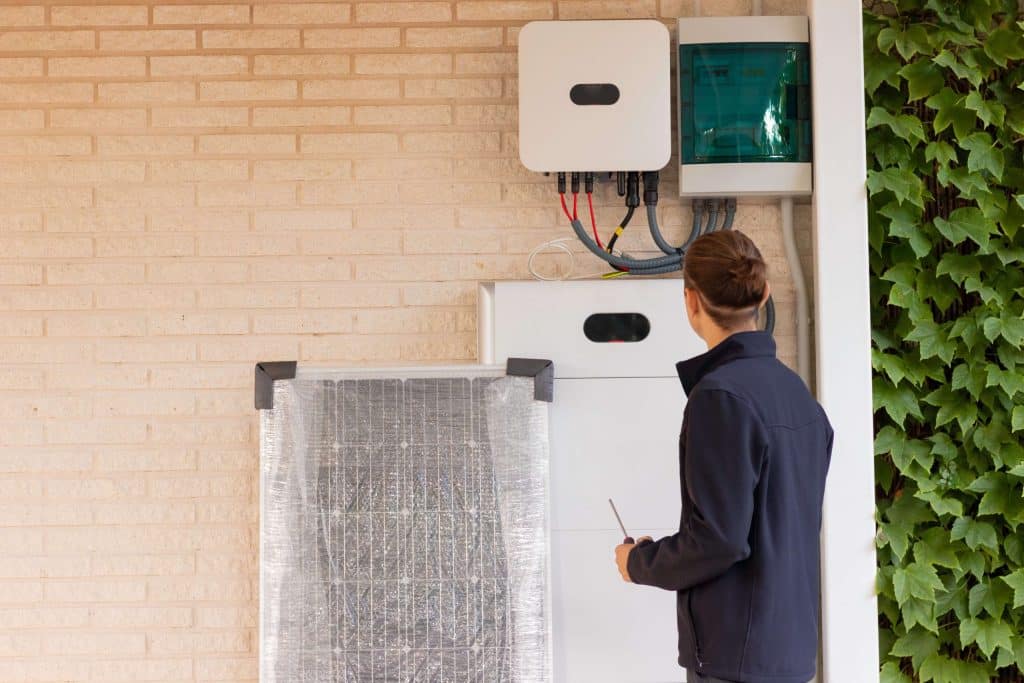How Home Batteries Can Save You Money on Energy Bills
As the world becomes increasingly focused on sustainability and energy independence, home batteries have emerged as a transformative technology.
By storing energy for later use, home batteries offer numerous benefits, including cost savings on energy bills. This article explores how home batteries can save you money and provide a more efficient and reliable energy solution.
Understanding Home Batteries

The stored energy can then be used during peak demand times, during power outages, or when the energy generation from solar panels is insufficient. Home Battery from EcoFlow is an excellent example of such a system, providing reliable and efficient energy storage solutions for homeowners.
The Mechanics of Home Batteries
Home batteries work by storing excess energy generated by solar panels or purchased from the grid during times of low demand and lower electricity rates.
This stored energy can be used when electricity demand is high, such as in the evening when families are home and using appliances, or during power outages to keep essential devices running.
Peak Shaving and Time-of-Use Rates
One of the most significant ways home batteries can save money is through peak shaving and time-of-use (TOU) rates. Electricity rates can vary significantly throughout the day based on demand. During peak hours, when demand is high, electricity rates can be substantially higher than during off-peak hours.
Home batteries enable homeowners to store energy when rates are low and use it when rates are high, effectively avoiding the higher costs associated with peak demand periods. This practice, known as peak shaving, can lead to substantial savings on energy bills.
Reducing Dependence on the Grid

During power outages, a home battery system can provide backup power, ensuring that essential devices and appliances continue to operate. This reliability can be particularly valuable in areas prone to frequent outages or natural disasters.
Net Metering and Self-Consumption
Net metering is a system where solar panel owners can sell excess energy back to the grid. While this can be beneficial, the rates paid for this excess energy are often lower than the rates charged for electricity from the grid.
Home batteries allow homeowners to maximize self-consumption of the energy they generate, storing excess energy for their own use rather than selling it back at a lower rate. This self-consumption can lead to significant cost savings over time.
Demand Charges and Energy Efficiency
In addition to TOU rates, some utility companies impose demand charges based on the highest amount of power used during a billing cycle. By using stored energy during peak demand times, homeowners can lower their peak power usage and reduce demand charges.
Home batteries also promote energy efficiency by allowing homeowners to manage their energy usage more effectively. Smart battery systems can be programmed to optimize energy consumption, ensuring that energy is used in the most efficient way possible. This can lead to further reductions in energy costs.
Incentives and Rebates
Many governments and utility companies offer incentives and rebates to encourage the adoption of home batteries and other renewable energy technologies. These incentives can significantly reduce the upfront costs of purchasing and installing a home battery system, making it a more affordable option for homeowners. Additionally, some regions offer tax credits or grants for energy storage systems, further enhancing the financial benefits.
The Future of Energy Storage
The market for home batteries is rapidly evolving, driven by advancements in technology and increasing demand for sustainable energy solutions. Battery technology has improved significantly in recent years, with modern batteries offering greater energy density, longer lifespans, and enhanced safety features.
As these technologies continue to develop, the cost of home batteries is expected to decrease, making them an even more attractive option for homeowners.
Case Studies and Real-World Examples
Real-world examples can illustrate the tangible benefits of home batteries. For instance, in California, where energy prices are high and power outages are common, many homeowners have adopted home battery systems. These systems have enabled them to reduce their energy bills by avoiding high TOU rates and provided a reliable source of backup power during outages.
In another example, a family in Texas installed a home battery system in conjunction with their solar panels. By storing excess energy during the day and using it during peak demand times, they were able to cut their energy bills by nearly 50%. The system also provided peace of mind during extreme weather events, ensuring that their home remained powered even when the grid went down.
Practical Considerations for Home Battery Installation

For those considering a home battery system, several practical considerations should be taken into account:
- System Sizing: The size of the battery system should match the energy needs of the household. This involves assessing daily energy consumption patterns and understanding peak usage times.
- Integration with Solar Panels: Home batteries are most effective when used in conjunction with solar panels. If you already have solar panels, integrating a battery system can maximize the benefits of your existing setup.
- Cost and Financing: While the upfront cost of home batteries can be high, financing options and incentives can make them more affordable. It’s essential to evaluate the long-term savings against the initial investment.
- Maintenance and Lifespan: Modern home batteries require minimal maintenance, but it’s important to understand the lifespan and warranty of the system. Regular monitoring and maintenance can ensure optimal performance.
- Professional Installation: Choosing a reputable installer is crucial for ensuring the system is set up correctly and safely. Professional installation can also help in navigating any necessary permits or regulatory requirements.
Conclusion
Home batteries represent a significant advancement in residential energy management, offering numerous benefits, including cost savings on energy bills, increased energy independence, and enhanced reliability.
By storing energy for use during peak demand times and power outages, home batteries can help homeowners reduce their reliance on the grid and take control of their energy usage.
As technology continues to improve and costs decrease, home batteries are likely to become an increasingly common feature in homes around the world, driving a more sustainable and cost-effective energy future.







